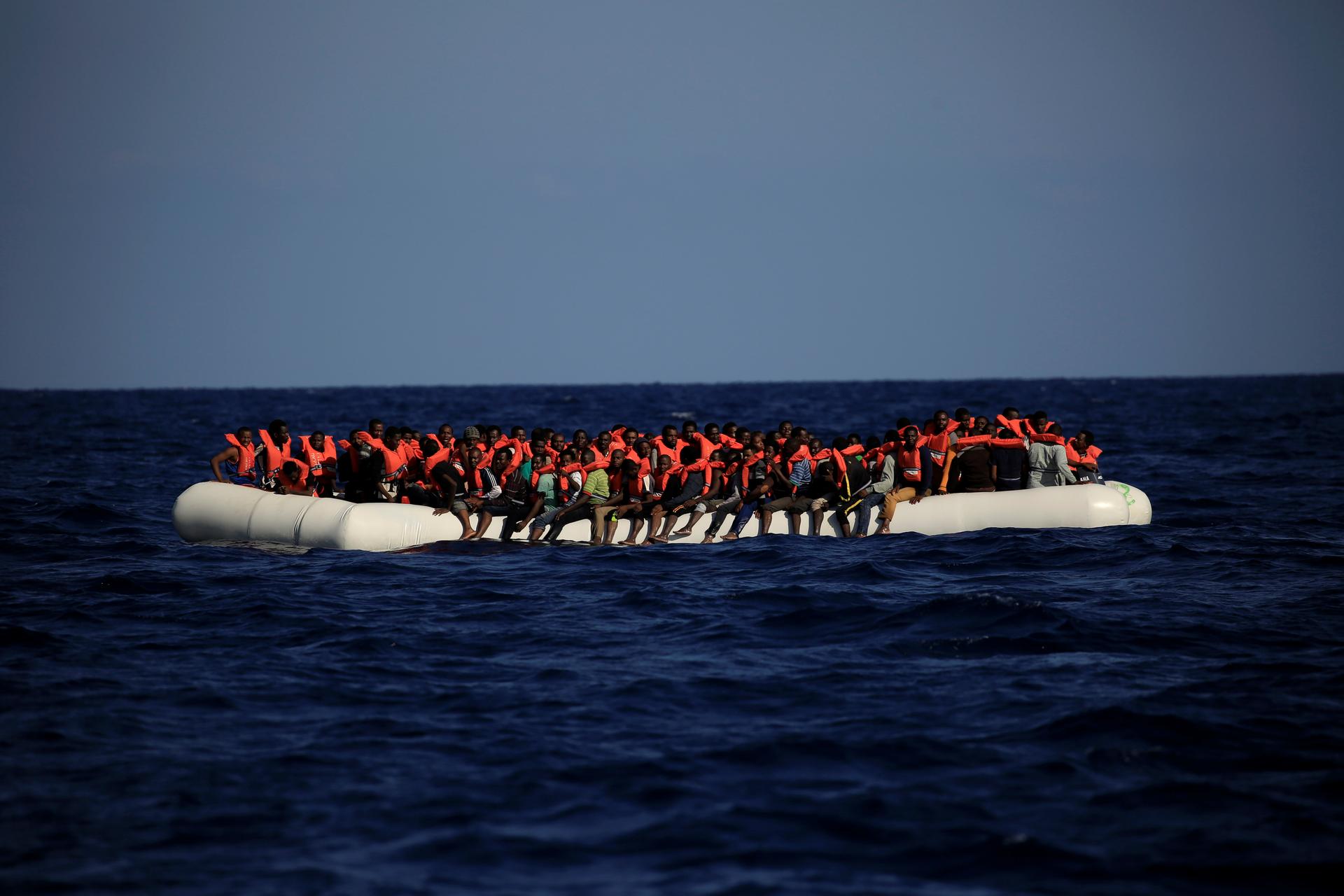An overcrowded dinghy with migrants from different African countries is seen after members of the German NGO Jugend Rettet guided them toward a rescue vessel during an operation off the Libyan coast in the Mediterranean Sea, September 21, 2016.
Hassan was an English teacher before the war began in Syria.
"He was a regular dude, he drove a nice car, he liked to date girls, he had a regular, fun life in Syria."
That's how James Bluemel, director of a new Frontline documentary called Exodus, describes Hassan — one of the main characters in the film.
Then Hassan began taking part in anti-government protests during the Arab Spring. During one of those protests, Hassan was arrested. He was severely beaten and taken into custody.
"I've got two of my ribs broken, my left leg was heavily damaged," recalls Hassan in the documentary. "They took us to the station. They put us in a cell and things were very ugly there," he recalls, stumbling and breathing heavily. Recalling the traumatic events, Hassan is unable to continue the interview and breaks down to cry.
Hassan is just one of the refugees that Exodus follows. There are Syrian families desperately trying to make it to Europe. There is a young man from the Gambia who is abducted on his way to Europe through Libya.
Bluemel says the film is aimed at everyone. "People may think they know this subject very well," he says. "They might have seen it on the news — those images of refugees coming through Europe and feel a bit numb or a bit disengaged with it."
And this is the challenge, he says: How do you help viewers re-engage with the story?
Exodus takes us as close as possible to traveling with these refugees. It's a powerful reminder that for so many of them, life back home is so hard that they are willing to die to get to a better home.
Every day, reporters and producers at The World are hard at work bringing you human-centered news from across the globe. But we can’t do it without you. We need your support to ensure we can continue this work for another year.
Make a gift today, and you’ll help us unlock a matching gift of $67,000!
